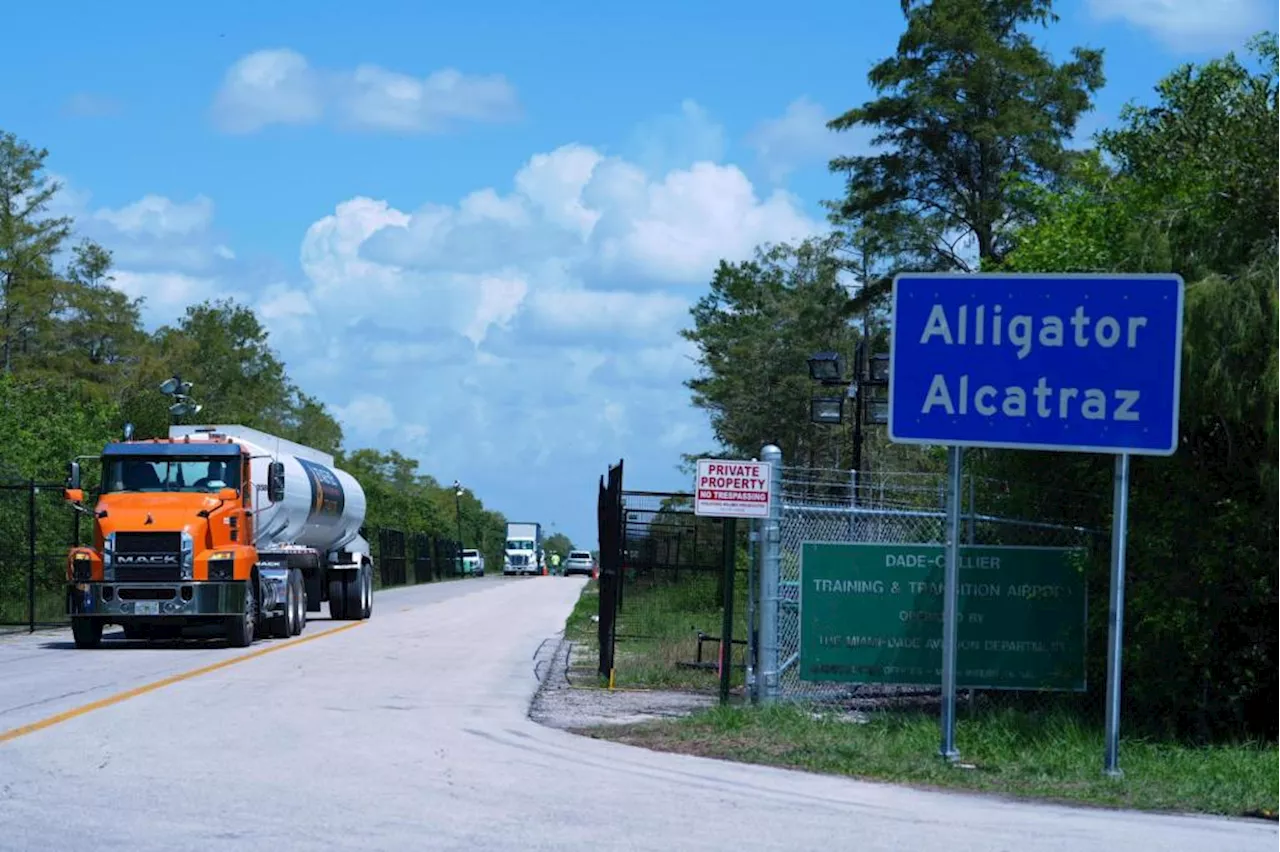An appeals court has temporarily halted a federal lawsuit challenging the operations of an immigration detention center in the Florida Everglades. The decision by the U.S. Eleventh Circuit Court of Appeals came after a request from U.S. government attorneys, citing funding shortfalls resulting from the ongoing government shutdown.
The legal dispute centers on the detention facility, often referred to as “Alligator Alcatraz,” which is located in Collier County, Florida. Environmental groups, including the Friends of the Everglades and the Center for Biological Diversity, along with the Miccosukee Tribe, have raised concerns regarding the environmental impact of the facility and alleged failures to conduct required environmental reviews.
Earlier this month, government attorneys sought a stay in the proceedings, stating that funding for both the U.S. Department of Justice and the Department of Homeland Security, which is a defendant in the case, had lapsed due to the shutdown. On Wednesday, the appellate court granted this request, effectively pausing the lawsuit.
The detention center is operated by the state of Florida in partnership with private contractors. Although the state manages the facility, federal officials have approved plans to reimburse state costs associated with its operation.
Paul Schwiep, an attorney representing the environmental groups involved in the lawsuit, criticized the government’s priorities during the shutdown. “Apparently, the government has sufficient money and manpower to operate a detention center in the heart of the Everglades to detain foreign-born workers, but not enough to file a brief in court to justify its conduct,” he stated. The lower court had previously held the facility’s operations were unlawful.
The lawsuit is not the only legal challenge facing the detention center. Two other cases questioning its operations are currently proceeding in federal court in Florida. Those suits further complicate the situation for the government as it navigates the legal landscape surrounding immigration and environmental policies.
While the court’s decision pauses the current lawsuit, it signals ongoing tensions between federal operations and environmental advocacy in a region known for its unique ecosystem. The Everglades is a vital natural resource, and any activities impacting its health and sustainability are likely to face scrutiny from multiple stakeholders.
As this legal battle unfolds, the implications extend beyond the courtroom. The future of the detention center and its operations remains uncertain, especially amid the broader context of government funding issues and environmental concerns.
